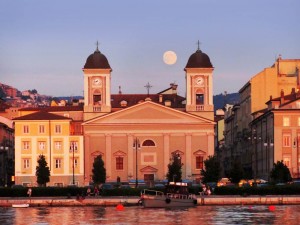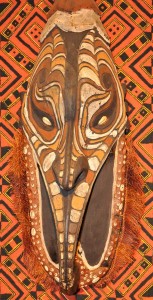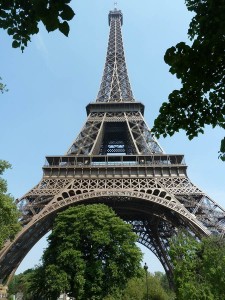Final Lessons Learned on International Assignments
Apr 28th, 2013 | By Lawrence B. Cahill | Category: Auditing
On December 27, 2012 the EHS Journal published an article of mine entitled “Lessons Learned on International Assignments”. The feedback has been extremely positive, especially from young professionals who anticipate the eventual need to travel internationally during their careers. As a consequence I have racked my brain to come up with a few more experiences that have taught me different, but equally important, work and life lessons. After a nearly 40-year career and coming up on retirement it’s rather fun to reflect on my experiences, both good and bad. I encourage others to do the same.
1. The Mexico Respirator
Some years ago I was working at a chemical plant in the outskirts of Mexico City. We were auditing the plant from top to bottom. One task was to enter a major process building and climb internal stairs to the roof. This seemed pretty straightforward until the site staff issued us half-face respirators as we stood at the building entrance. They told us that the respirators were required for building entry. So each of the visitors climbed the five flights of stairs donned with a respirator. I don’t mind telling you that I was pretty winded when we reached the roof. It then occurred to me that I had just used personal protective equipment in an unsafe manner (e.g., no training, no fit testing, etc.). What was I thinking? I guess I wasn’t.
Lesson Learned: Safety first, always!
2. The Singapore Culture
In my travels I have been to Singapore at least a half-dozen times. It is one of the prettiest and cleanest places I have ever been. For those who don’t know, Singapore is a city-state located off the southern tip of the Malay Peninsula, about 90 miles north of the equator. English is one of four official languages and is the language used in business, unusual for Asia. I was told on one of my trips that Singapore is about the same size as Los Angeles but has more McDonalds. It is a very westernized environment, which can be very comforting to Americans. On one of my trips, there was some controversy over the “caning” of young men for what most would view as minor transgressions. For example, one of the local laws prohibited spitting on the sidewalk and if one was caught this was considered a canable offense. Now, I’m not normally a spitter but as I walked along the main sidewalks in the business district one day all I could think to myself was “don’t spit, don’t spit, please don’t spit!”
Lesson Learned: Be aware of and obey the local laws and customs.
3. Masks in South Africa
 Today’s economy is truly global. You can find expensive Italian shoes in the local mall; you don’t have to travel to Rome. So what type of souvenir can you bring back that is truly unique to the country you visited and can’t be found easily in the States? Well I learned that there are at least two: Hard Rock Café tee shirts and tribal masks. When my two sons were growing up they had enough HRC shirts to fill a closet; and indeed, because of that their mother finally put a halt to that practice. But collecting masks proved very fulfilling. I have some twenty masks on my office walls from pretty much everywhere. Each one is a special memory; one in particular. That one came from a street vendor in Johannesburg. I was there with a local colleague and decided on a particular mask that I really liked. My friend then began negotiations with the vendor in Swahili. Things got pretty heated and I felt the need to step in. I asked my friend what the issue was and he told me that the vendor wanted the South African equivalent of a dollar for the mask and, on principle, he wasn’t going above 50 cents. I quickly gave the vendor the dollar-equivalent and we went on our way.
Today’s economy is truly global. You can find expensive Italian shoes in the local mall; you don’t have to travel to Rome. So what type of souvenir can you bring back that is truly unique to the country you visited and can’t be found easily in the States? Well I learned that there are at least two: Hard Rock Café tee shirts and tribal masks. When my two sons were growing up they had enough HRC shirts to fill a closet; and indeed, because of that their mother finally put a halt to that practice. But collecting masks proved very fulfilling. I have some twenty masks on my office walls from pretty much everywhere. Each one is a special memory; one in particular. That one came from a street vendor in Johannesburg. I was there with a local colleague and decided on a particular mask that I really liked. My friend then began negotiations with the vendor in Swahili. Things got pretty heated and I felt the need to step in. I asked my friend what the issue was and he told me that the vendor wanted the South African equivalent of a dollar for the mask and, on principle, he wasn’t going above 50 cents. I quickly gave the vendor the dollar-equivalent and we went on our way.
Lesson Learned: Perspective is everything.
4. Lost Luggage at Charles de Gaulle Airport
I was working in Anzio, Italy for a consumer goods company. Anzio is a coastal city about 35 miles south of Rome and was a city of great significance to the Allies during World War II. During the visit the team was staying in Rome and commuting daily to Anzio. Having never been to Rome, I decided at the last minute to change my plans and stay an extra couple of days to visit the sites, and I’m glad I did, sort of. My new plan was to return home to Philadelphia via Paris’ Charles de Gaulle Airport. All was going smoothly until I reached the departure gate at Charles de Gaulle. There was my plane, all set to go. And then the agent proceeded to tell me that my revised ticket had not been properly processed and I could not board even though there were seats available. Sadly, I sat down and watched my ride home depart. I spent the next 12 hours in the airport and took a flight that evening not to Philadelphia but to New York’s JFK airport. My luggage followed me home, 12 days later!
Lesson Learned: Be careful about making last minute travel adjustments when travelling internationally.
5. Returning from Australia
I was returning to the United States via San Francisco from a two-week long trip to Australia. The flight from Sydney to San Francisco is about 16 hours non-stop. That’s two full work days sitting on a plane. I can assure you that there is nothing glamorous about that even if you’re sitting in business class as I was. As I recall, we landed early in the morning and I was prepared for the typical customs re-entry hassle. But this time the hassle was like none other. As I handed the customs agent my passport he screams out at the top of his lungs – “YOU’RE THE ONE WE’VE BEEN LOOKING FOR!!” If I weren’t so exhausted from the trip I probably would have run for my life. But thankfully I did not; I just stood there with a blank expression on my face. The agent then simply stamped my passport and told me to move along. To this day I’m not exactly sure what happened and why.
Lesson Learned: Keep your wits about you at all times. You never know.
6. Being Safe in South Korea
We were evaluating a chemical plant in South Korea. Our preparation was flawless or so I thought. We had all the appropriate personal protective equipment to be safe in the plant; hard hats, safety glasses, hearing protection, safety shoes, and so on. However, there was one process area of the plant that required fire-retardant clothing, or Nomex®. Not to worry as the site had plenty of spare uniforms for visitors. There was one problem however. There were no uniforms large enough for one person on the team, namely me. As a consequence, I was not allowed to enter that portion of the plant. So embarrassing in so many ways.
Lesson Learned: Preparation down to the very last detail is paramount.
7. Ordering Train Tickets in Paris
 I had three years of French in high school. Mind you it was far from conversational French. It was more about learning vocabulary and syntax. So I figured that buying a train ticket by myself to Rouen at Paris’ Gare du Nord, the busiest railway station in Europe, would be a challenge but not impossible. I was instructed by my French colleagues that I should go to the ticket window and say “première classe billet pour Rouen, s’il vous plaît?” or in English “first class ticket for Rouen, please?”
I had three years of French in high school. Mind you it was far from conversational French. It was more about learning vocabulary and syntax. So I figured that buying a train ticket by myself to Rouen at Paris’ Gare du Nord, the busiest railway station in Europe, would be a challenge but not impossible. I was instructed by my French colleagues that I should go to the ticket window and say “première classe billet pour Rouen, s’il vous plaît?” or in English “first class ticket for Rouen, please?”
The agent behind the window just shrugged his shoulders, implying he had no idea what I was requesting. I must have said the same phrase ten times with different pronunciations, with no success. There was now a long line building up behind me, with many becoming quite impatient, though none offered to help. Finally I wrote down the statement on a piece of paper and gave it to the agent who now immediately understood what I needed. I was done in about a minute. Was it really my lousy pronunciation or was I being “punk’d”? Who knew?
Lesson Learned: Be ready to communicate your needs in more than one way.
8. A Difference of Opinion in Thailand
Our team was conducting an evaluation of a chemical plant in Bangkok, one of my favorite cities in the world. Part of the review was to evaluate the performance of the on-site wastewater treatment plant. We discovered that the average daily biochemical oxygen demand (BOD) discharge concentration from the wastewater treatment plant was about 40 mg/l. The effluent standard listed in the permit was 30 mg/l. They were out of compliance and revising the permit was not an option. The site manager told us that the plant is considered a model for the region and they have never been cited by the City of Bangkok. We also discovered that other companies up and down that stretch of the river, which is basically an open sewer, are discharging without treatment and BOD effluent concentrations were as much as several hundred mg/l. The local environmental agency had issued an environmental citizenship award to the site (a plaque was mounted in the lobby) and the agency director routinely brought other companies’ management to the site to show them “how it should be done.” It was going to cost about $250,000 to upgrade the plant to meet the 30 mg/l limit. As auditors we had a dilemma. Do we report this as a finding to corporate management and recommend that the capital be spent to upgrade the facility? The plant manager was definitely opposed to spending the money on what he believes to already be a “best in class” operation for his City. It was not a comfortable situation but we did record the issue in the report. Like most U.S. companies this one had a corporate policy that they would operate in compliance with all environmental regulations wherever they operate in the world. Needless to say, the plant manager did not become my best friend.
Lesson Learned: Tell it like it is, regardless of the consequences. You will sleep better at night.
About the Author
Lawrence B. Cahill, CPEA (Master Certification) is a Technical Director at Environmental Resources Management in Exton, Pennsylvania, U.S.A. He has over 30 years of professional EHS experience with industry and consulting. He is the editor and principal author of the widely used text, Environmental, Health and Safety Audits, published by Government Institutes, Inc., and now in its 9th Edition. He has published more than 60 articles and has been quoted in numerous publications including the New York Times and the Wall Street Journal. Mr. Cahill has worked in over 25 countries during his career. He holds a B.S. in Mechanical Engineering from Northeastern University, an M.S. in Environmental Health Engineering from Northwestern University, and an MBA from the Wharton School of the University of Pennsylvania.
Images:Evening at Trieste by Michaela Kobyakov, Leonding, Upper Austria, Austria; Tribal Mask by J. T. Johnson, U.S.A.; Eifel Tower, Paris by Gregory Runyan, Olathe, Kansas, U.S.A.
.

